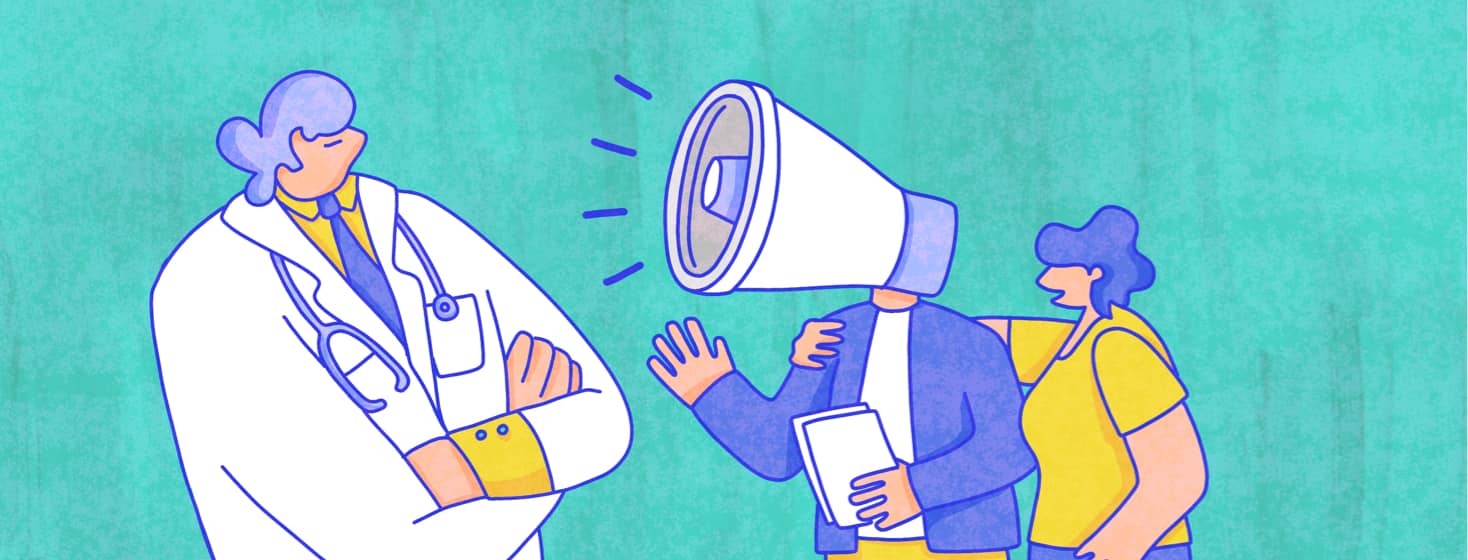Crisis Time
With a condition as rare as myasthenia gravis (MG), caregivers are often challenged to advocate for appropriate care.
That can sometimes require a lot of preparation and a surprising level of tact. Highly qualified doctors and nurses may have seen very few cases and have limited background in the condition.
Challenges of a rare condition
A myasthenia crisis can be triggered by something as innocuous as an infection, a minor injury, or just a stressful day. The respiratory muscles become so weak that the patient cannot breathe properly.1
When that happens it’s not always possible to reach an expert. Sudden low oxygen levels or critical muscle weakness require immediate help. But highly competent urgent care specialists may have seldom encountered MG. The most obvious symptoms of myasthenia crisis often mimic other conditions.
In the clinic, the advocate might be in the awkward position of having more information than the clinic about the person you care for. Low oxygen levels can often be mistaken for other respiratory issues in an urgent care setting. If the triage medic there assumes it’s pneumonia, how do you argue?
Commonly prescribed drugs might be ineffective or even dangerous in these situations. So also ask the specialist for the most reliable list of "black box" drugs to avoid.2
Keep your MG information handy
First, rely on your partnership with your neurologist or primary physician in advance. Ask for a short summary of the case/diagnosis.
This might be found in an open record system like MyChart. Also keep a list of all your drugs and treatments. Some chain pharmacies have a direct access system. Laminate both documents and keep them handy.
Then make them available to the triage nurse (not the receptionist and don't wait for the doctor.) Even though you may feel a little frantic as an advocate, respect the system. To avoid the impression that the advocate is doing "medicine by Google," try an opening such as ... "Our neurologist has asked me to always pass this along ..."
Communicate with the staff
In a time of COVID, some emergency facilities discourage companions in the ER. If it's necessary, make that argument in a logical way.
If you can manage to meet with the triage nurse instead, that might be safer. Of course, hang around. If your person isn't good at understandable explanations about their MG, be honest about that too.
Be persistent
But in the end, advocating for a myasthenia gravis patient in a crisis might require activating a person’s "stubborn streak." A busy ER, a rare condition that has multiple forms, and a crisis don't mix well. Your ultimate weapons might be persistence and a smile.
We've been there. We didn't take the first response or the second from good folks who have never seen the situation before. We smiled, offered our background material, and stood fast.
Sometimes it was easy. Once a staff member asked me to look up the appropriate treatment on my cell phone! With calm preparation, it can happen.

Join the conversation